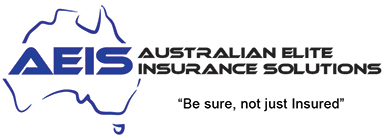Franchising is a popular business model and is often a way for people to start out running their own business because it provides so much support and guidance. There are also franchise models in virtually every industry, from the popular fast food chains like McDonalds and Pizza Hut to Snap on Tools and 7 Eleven.
As these success stories attest, it can be a very profitable way to run a business. Data published by The Franchise Institute found the Australian franchise market was worth $169.5 billion and employed more than 600,000 people in 2023.
If you already run a franchise, or you’re thinking about it, making sure you have the right insurance in place is essential. So here’s a guide to everything you might need to know about insurance for franchises.
Understanding the basics of franchising in insurance
Starting a franchise can be an exciting and lucrative endeavour, but it’s crucial to understand the different types of insurance necessary to protect your business. Insurance is often a vital component in mitigating risks and ensuring long-term stability.
It may be essential to take out public and product liability insurance, which covers third-party claims of bodily injury, property damage and personal injury.
“This is fundamental for any business as it protects against insurable incidents that could occur on your premises,” says Michael White, Steadfast broker technical manager.
For instance, if a customer slips and falls in your store, liability insurance may cover their medical expenses and any legal fees if they decide to sue.
Property insurance is often a must for protecting the franchise’s physical assets, including equipment, inventory and furniture. Property insurance typically covers damages from fire, theft and natural disasters.
“For franchisees, this coverage ensures your investment is protected against unforeseen events that could otherwise result in significant financial loss,” says White.
If your franchise employs staff, workers’ compensation insurance is a legal requirement, although the rules vary across different states and territories. This insurance provides coverage for medical expenses and lost wages if an employee is injured or becomes ill due to their job. It may also protect you from potential lawsuits by employees who suffer work-related injuries.
Business interruption insurance covers the loss of income a business may suffer after a disaster. This can include natural disasters and fires or other catastrophic events that cause a temporary shutdown.
“This insurance helps to cover ongoing expenses such as rent, utilities and salaries, ensuring you can stay afloat until normal operations resume,” says White.
Cyber insurance can also be vital to help protect the franchise against the actions of cyber criminals, certain human errors that may impact the business’s IT network and other technology-related incidents.
Common franchisor insurance requirements
While every franchise is different, the master agreement is likely to stipulate a range of requirements in relation to the insurance cover the franchisee requires to be part of the system.
- Compliance with franchise agreement
Franchisors may have specific requirements regarding the types and amounts of insurance franchisees must carry. These requirements are often outlined in the franchise agreement and are non-negotiable. They are designed to protect both the franchisor’s brand and the franchisee’s investment.
- Additional insured clause
Some franchisors stipulate they be named as an additional insured on the franchisee’s insurance policies. This means the franchisor is covered under the same policy as the franchisee and can benefit from the protection the policy offers. This is crucial for protecting the franchisor from any legal claims that may arise from the franchisee’s operations.
- Regular audits and proof of insurance
Franchisors may audit your franchise to ensure you’re maintaining the required insurance coverage. During an audit, franchisees will need to provide proof of insurance, which may include certificates of insurance and detailed policy information. Failure to comply with these requirements may lead to penalties or even termination of the franchise agreement.
Common mistakes franchisees make when taking out insurance
It’s easy to make mistakes around your insurance when you’re starting out in franchising.
A frequent error may be underestimating the coverage needed, leading to insufficient protection and potential financial vulnerability. This is why it may be helpful to work with your Steadfast broker who can evaluate your franchise’s unique risks to ensure comprehensive coverage.
Failing to review policies regularly can also leave your business exposed to new risks that may not be covered under an outdated policy. Lastly, overlooking exclusions and limitations within insurance policies may also result in significant gaps in coverage.
Franchisees should thoroughly understand these aspects of their policies to help them avoid unpleasant surprises when it comes time to make a claim. Regular communication with your Steadfast broker can be key to avoiding these mistakes.
Getting the right cover
Insurance is a critical aspect of running a successful franchise. What’s vital is to understand the insurance you need and comply with franchisor requirements to protect your investment and ensure the long-term stability and success of your franchise.
Talk to your broker today to make sure you have the right cover in place for your franchise.
Important notice
This article is of a general nature only and does not take into account your specific objectives, financial situation or needs. It is also not financial advice, nor complete, so please discuss the full details with your Steadfast insurance broker as to whether these types of insurance are appropriate for you. Deductibles, exclusions and limits apply. You should consider any relevant Target Market Determination and Product Disclosure Statement in deciding whether to buy or renew these types of insurance. Various insurers issue these types of insurance and cover can differ between insurers.
For the original post, visit Steadfast


If you would like to discuss your insurances further, please feel free to contact us:
Click this link to book your free appt Book an appointment


Recent Comments